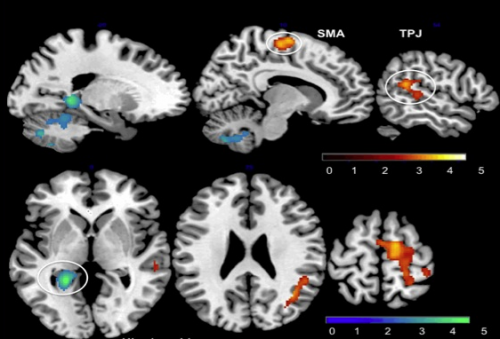(Medical Xpress)—In a world first, University of Melbourne researchers along with international collaborators have used Functional Magnetic resonance imaging (fMRI) to examine brain function to help better understand the affects of repressed stressful memories.
The study is of patients with conversion disorder (what Freud would have called Hysteria), which is still a very common disorder though rarely discussed or researched today.
"Freud started his whole theory by arguing that patients with hysteria repressed their memories of traumatic events and that this led to their developing their symptoms (of paralysis, for example) - what he called 'conversion," said Professor Richard Kanaan from the Department of Psychiatry, University of Melbourne and Austin Health.
"The world has pretty much given up on that theory largely because they thought it couldn't be tested," he said.
Published recently in the Journal of the American Medical Association, Psychiatry, the fMRI findings support Freud's theories for the first time in over a century.
Researchers first painstakingly identified what they thought were the traumatic events that led to them becoming sick using the Life Events and Difficulties Schedule (LEDS) as a guide. This is a well-known psychological measurement for assessing life stress levels and experience.
"We got our patients to remember the traumatic events while we scanned their brains. Results showed something that looked like it could be them repressing their memories and possibly what could be them developing symptoms in response."
"While it is still a preliminary study, in the history of psychiatry as a science it is potentially a significant breakthrough," he said.
Journal information: Journal of the American Medical Association
Provided by University of Melbourne



















